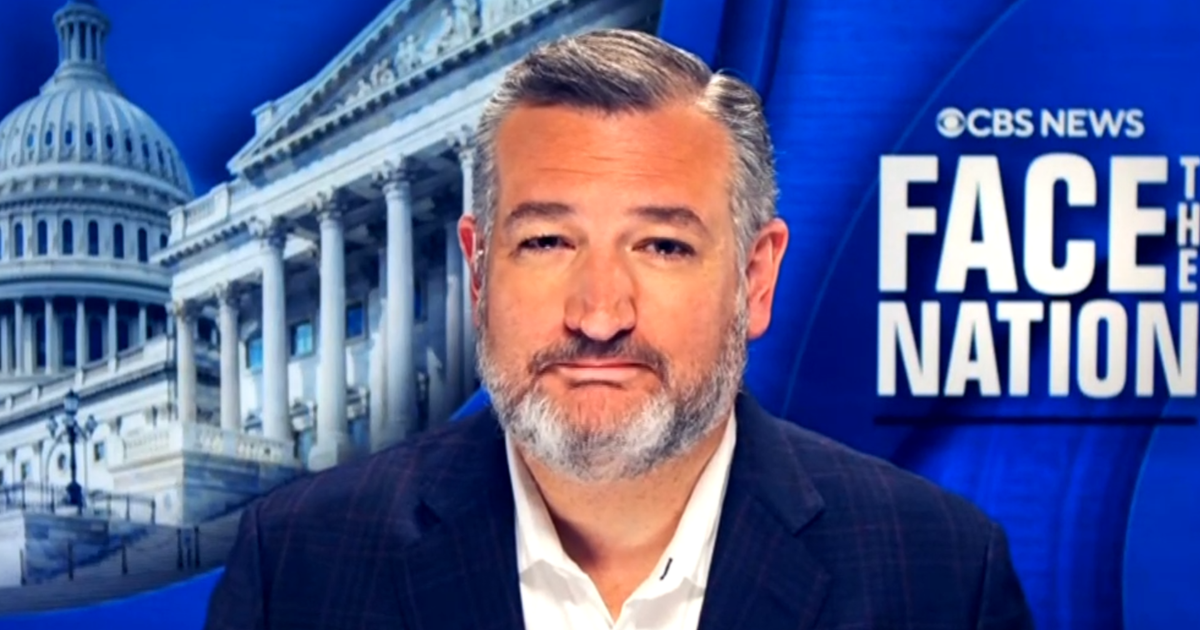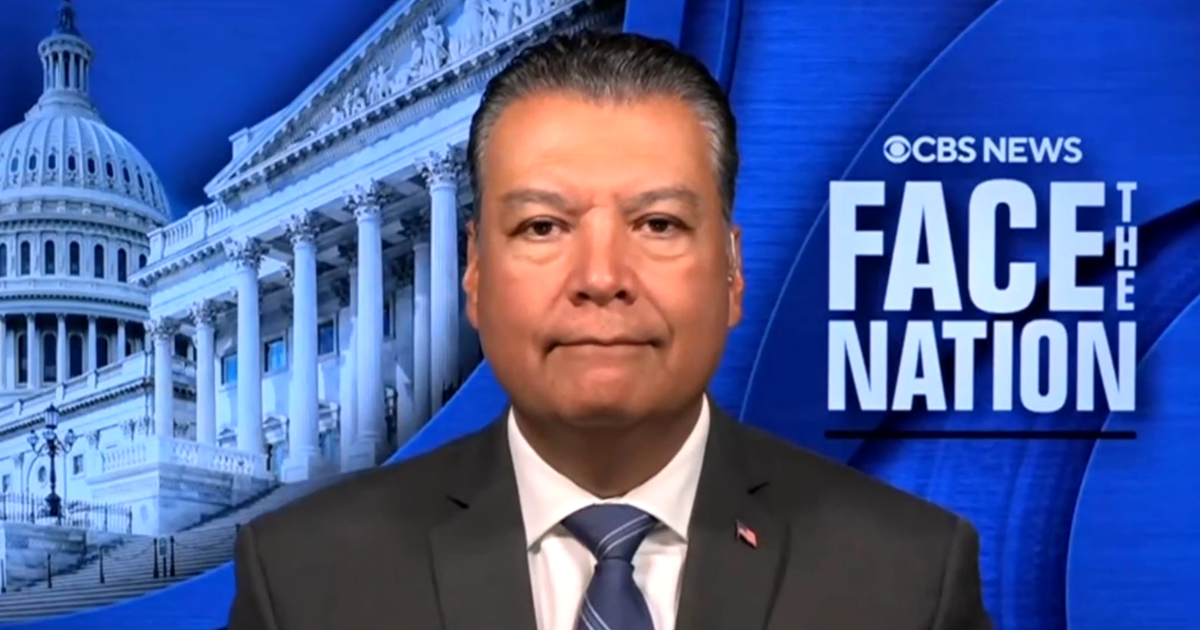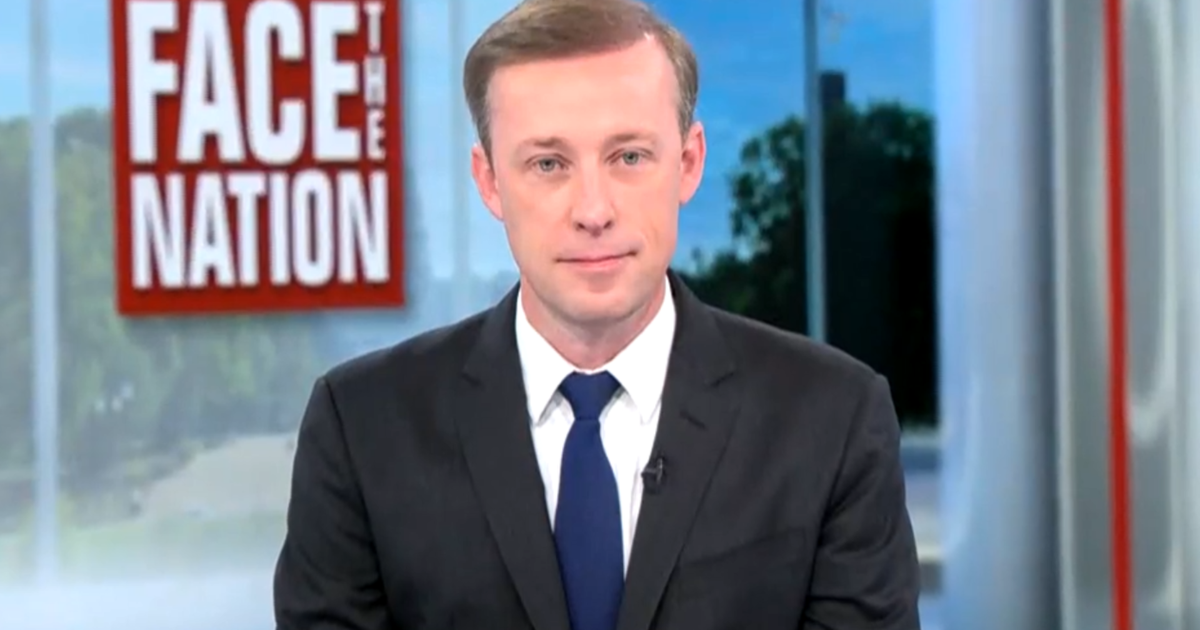Transcript: Jill Schlesinger on "Face the Nation with Margaret Brennan," Dec. 1, 2024
The following is a transcript of an interview with CBS News business analyst Jill Schlesinger on "Face the Nation with Margaret Brennan" that aired on Dec. 1, 2024.
MAJOR GARRETT: Welcome back to Face The Nation. We're joined now by CBS News business analyst Jill Schlesinger. She's in Southampton, New York this morning. Jill, Senator Ted Cruz described tariffs and the threat thereof as leverage, but what I'm curious about economically is do retailers view it as only leverage? Do consumers view it only as leverage? Are they beginning to change their behavior in anticipation?
JILL SCHLESINGER: Well, let's just talk about whether or not they're going to change their behavior. We know that there were some retailers who were sort of dangling this out around this holiday weekend, saying, Oh, buy now because tariffs could make prices go up. I don't know what the motivation of most people is when they shop, but I'm not sure it's tariffs. What we do know about tariffs is, remember, this is a fee that is imposed on an imported good. The importing company, the U.S. company that takes that good in, has to make a decision in that moment, and that company has to decide, are we going to eat it and maybe make less money this year, or are we going to pass it along to consumers? So that is why consumers are a little unnerved by this and businesses are as well, because they're not really sure whether they can pass that along and have consumers pay that additional price. What we know is over the long term in history, tariffs tend to increase the price of certain goods. It's not necessarily across the board, but, you know, it is hard coming off of what we've just come through in the last few years with this inflationary spike to imagine that consumers are just going to take it in stride. It is a real hard thing to imagine that any company or consumer is going to feel like they want to absorb higher prices at this point.
MAJOR GARRETT: Jill, there was a tariff story in the first Trump administration. Do you foresee a deeper and different tariff story potentially in Trump 2.0?
JILL SCHLESINGER: Well, I think there's two parts of that question, which is, we don't know what these tariffs are. And as Senator Cruz said, this is a negotiation, so we don't know where we're going to land in that negotiation. But a big difference between where we are today and where we were back in 2017 and 2018 is during the- the early Trump administration, what we had was incredibly low inflation. That was after the financial crisis. For all those years, inflation or prices, only grew by about less than 2% a year. Now, compare that with where we are now. We had inflation spike at a 40-year-high of 9% in the summer of 2022. Yes, that inflation rate has come down, but prices are still about 22, 23% higher than they were just four or five years ago. So the big difference between the first Trump administration and the second Trump administration is prices are already high and there are many Americans who are struggling. So, I think that that is the real fear among economists that I speak to. They're worried that this is going to cause a real anxiety among consumers, and that consumers might pull back at a time where they- actually, the economy is doing pretty well.
MAJOR GARRETT: Talking about the economy doing well, you crunch a lot of numbers for us, Jill, and always break them down so easily for our audience, when you look at the data, what's the best news you see and what's the most worrisome sign?
JILL SCHLESINGER: Well, the best news as- is that the labor market has grown really substantially and has kept up. So I think that the labor market has been the driver of this economy, and it's been pretty consistent. The other part of the good news story is that the United States economy, more than any other developed nation, has come out of the COVID era, and that post-COVID inflationary spike much stronger, in a growth mode. So we are seeing really good things from the labor market. We're seeing things in the economy. We're seeing that AI and technology is really in a boom period. These are all wonderful things. So what's the downside here? I hate to be a killjoy, but why not? I play one on Sunday mornings, and what I can see is that these tariffs could cause a problem for a lot of consumers who are already struggling, and also this idea that we are going to see the extension of the tax cuts from the first Trump administration in the individual tax code, there is a fear among some investors that, while we may not have a crisis right now when it comes to the debt and the deficit, that the extension of those tax cuts could start to really unnerve financial markets. Not happened yet, but those are the two worrisome thing:, the tariffs and the debt and the deficit. I think those are the two looming things and of course, all the things we can't contemplate right now.
MAJOR GARRETT: The three stock indexes have gone up pretty regularly since Election Day. Is that a methodical and well thought out reaction to an election or a kind of exuberance that may soon run its course?
JILL SCHLESINGER: Time will tell. I think that the initial investor reaction was a second Trump presidency would mean a drop in the tax rates or the extension of the tax cuts, and those tax rates would basically be in- in place for another four years. So we'd have low taxes, which is good for especially the wealthier people out there. They love low taxes, and corporate taxes were already enshrined in the code. Okay, so we have taxes staying low. That's a big factor when you come- when it comes to investing. The second part is the idea that a Trump administration would have a light regulatory touch so when you saw that first few trading- those first few trading days after the election, what went up a lot? The most highly regulated industries. So that could be energy, that could be banking, that could be other areas where you could really need- industrial companies, where you need a lot of regulatory prominence in the working of your business. Lighter regulatory touch will mean that those businesses will do well. Okay, so is it exuberance or not? Who knows? I can only tell you that as someone who watches markets all the time, when everybody tells me that the sky is clear and the sun is shining and it's rainbows and unicorns, the only thing I can remember is what my father used to say is, well, no one ever rings a bell at the top or at the bottom. So if you're an individual investor, don't count on everything being great. There's going to be a market slide. There is going to be a sell-off at some point. Don't count it- on everything being great all the time. Stick to your game plan and only change that game plan, not when the administration changes, but when your own life changes. That's it.
MAJOR GARRETT: Breaking it down for us as always and beautifully so. Jill Schlesinger, thanks so very much. And we'll be right back.



